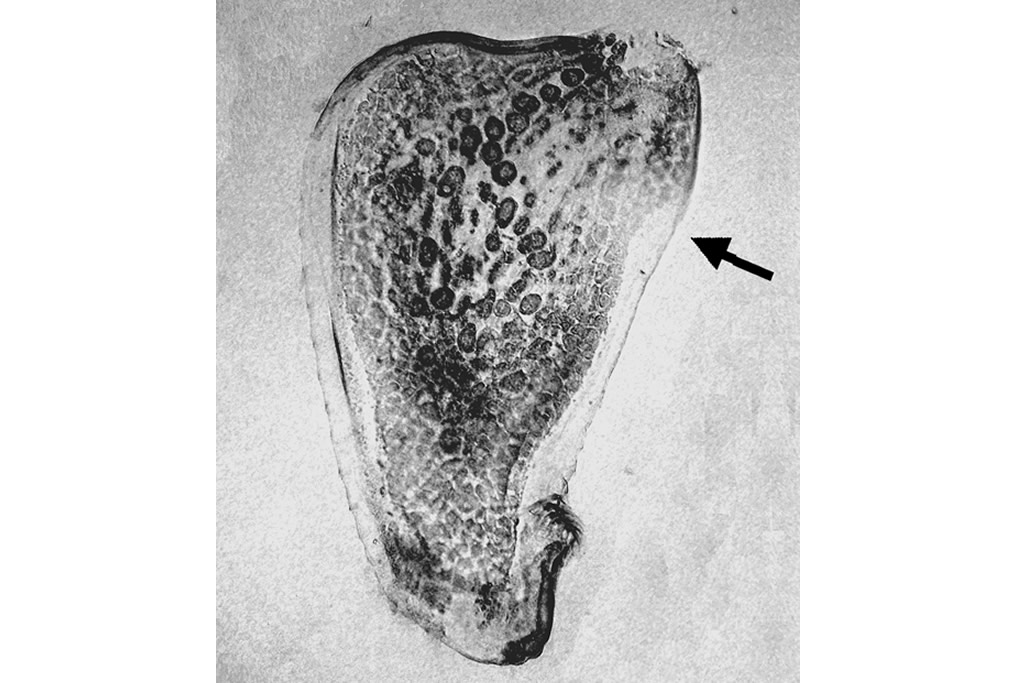Trichoniscus pusillus Brandt, 1833
Common name
Synonyms
- Trichoniscus pusillus form pusillus
- Trichoniscus pusillus sensu stricto
Status:
GB IUCN status: Least Concern
Identification
The pygmy woodlice of family Trichoniscidae (and Styloniscidae) are readily distinguished from other woodlice by the shape of the antennal fagellum which comprises a tapered cone (of indistinct segments) bearing a terminal bristle.
Trichoniscus species are characterised by having the eyes composed of three ommatidia and a smooth body surface. Body and eye pigments are retained in alcohol.
Trichoniscus pusillus a small purplish-reddish species of identical in appearance to the closely related T. provisorius, but is consistently larger with gravid females reaching 4.5 mm (gravid females of T. provisorius rarely exceed 3.5 mm in length).
The two species can be reliably separated by microscopic examination of the male first exopod (see image and BMIG Newsletter 18, pg2). Unfortunately, T. pusillus is parthenogentic and males are rarely encountered. Thus, T. pusillus s.str. is relatively under-recorded.
Distribution
Trichoniscus pusillus is very common throughout Britain and Ireland and the verified records indicates that it occupies a very broad habitat niche. Unfortunately, most records are not differentiated between the two species (simply given as T. pusillus agg.).
Habitat
There is considerable overlap with T. provisorius, but T. pusillus appears to be better suited to cooler, damper habitats. It is usually found close to the soil surface, typically on the underside of stones and dead wood or amongst leaf-litter and moss. However, both species my occur in close proximity.
This summary is based on the detailed account in Gregory (2009).
References
Gregory, S. (2009) Distinguishing species within the Trichoniscus pusillus species aggregate, BMIG Newsletter 18: pg 2.
Gregory, S. (2009) Woodlice and Waterlice (Isopoda: Oniscidea & Asellota) in Britain and Ireland. Field Studies Council/Centre for Ecology & Hydrology.
Links
World List of Marine, Freshwater and Terrestrial Isopod Crustaceans: https://www.marinespecies.org/isopoda/aphia.php?p=taxdetails&id=263752









